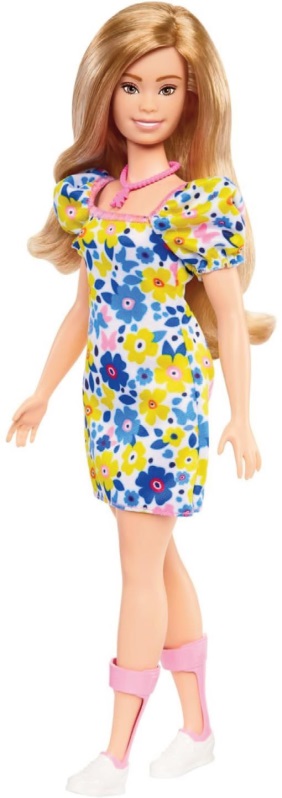WHAT'S HAPPENING
DEBUT OF FIRST BARBIE DOLL WITH DOWN SYNDROME IS A MASSIVE MOMENT IN REPRESENTATION
Mattel is adding more diversity to its lineup of dolls, releasing the first-ever Barbie with Down syndrome.
Mattel, Inc. announced the addition of a Barbie doll with Down syndrome, created to allow even more children to see themselves in Barbie, as well as have Barbie reflect the world around them. The Barbie doll with Down syndrome is meant to inspire all children to tell more stories through play.
"As the most diverse doll line on the market, Barbie plays an important role in a child's early experiences, and we are dedicated to doing our part to counter social stigma through play," said Lisa McKnight, Executive Vice President and Global Head of Barbie & Dolls, Mattel. "Our goal is to enable all children to see themselves in Barbie, while also encouraging children to play with dolls who do not look like themselves. Doll play outside of a child's own lived experience can teach understanding and build a greater sense of empathy, leading to a more accepting world. We are proud to introduce a Barbie doll with Down syndrome to better reflect the world around us and further our commitment to celebrating inclusion through play."
To ensure the doll accurately represents a person with Down syndrome, Barbie worked closely with the National Down Syndrome Society (NDSS). NDSS empowers individuals with Down syndrome and their families by providing resources, driving policy change, engaging with local communities. NDSS’s guidance and real-world experiences informed the design process from start to finish, including the doll’s sculpt, clothing, accessories and packaging. The close partnership ensured the Barbie team celebrated individuals with Down syndrome through a doll that would immediately connect with the community.

FASHIONISTAS: Last year, half of the dolls sold by Mattel were diverse dolls and the bestsellers were a Barbie in a wheelchair and a Black doll with an afro hairstyle.
"It was an honor working with Barbie on the Barbie doll with Down syndrome," said Kandi Pickard, NDSS President and CEO. "This means so much for our community, who for the first time, can play with a Barbie doll that looks like them. This Barbie serves as a reminder that we should never underestimate the power of representation. It is a huge step forward for inclusion and a moment that we are celebrating."
Children's early experiences help shape their thoughts and perceptions – and Barbie can play an important role in this process. When a child plays with Barbie, they play out their dreams and imagine they can be anything. Doll play has an incredible purpose during key developmental stages as it may help set children on a course for success by allowing them to develop empathy – fueling social skills needed to excel as they imagine their futures with an equal playing field. The Barbie doll with Down syndrome allows more children to see themselves in Barbie as well as the world around them, which can help foster a sense of inclusivity.•
